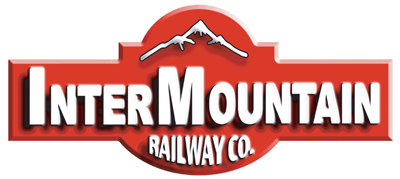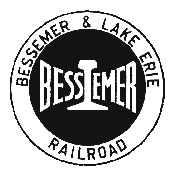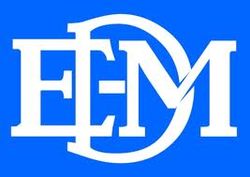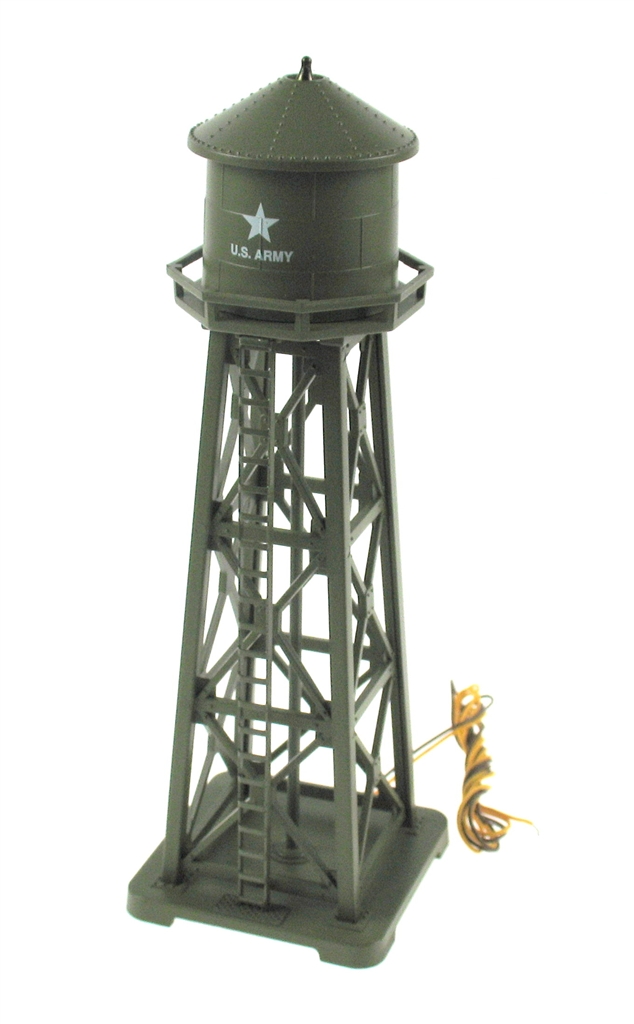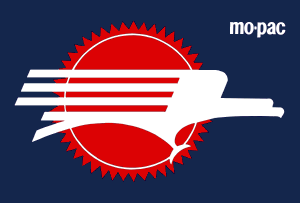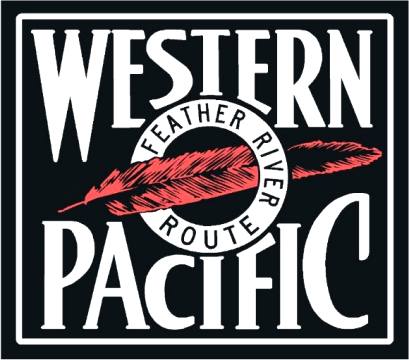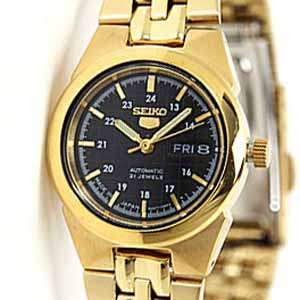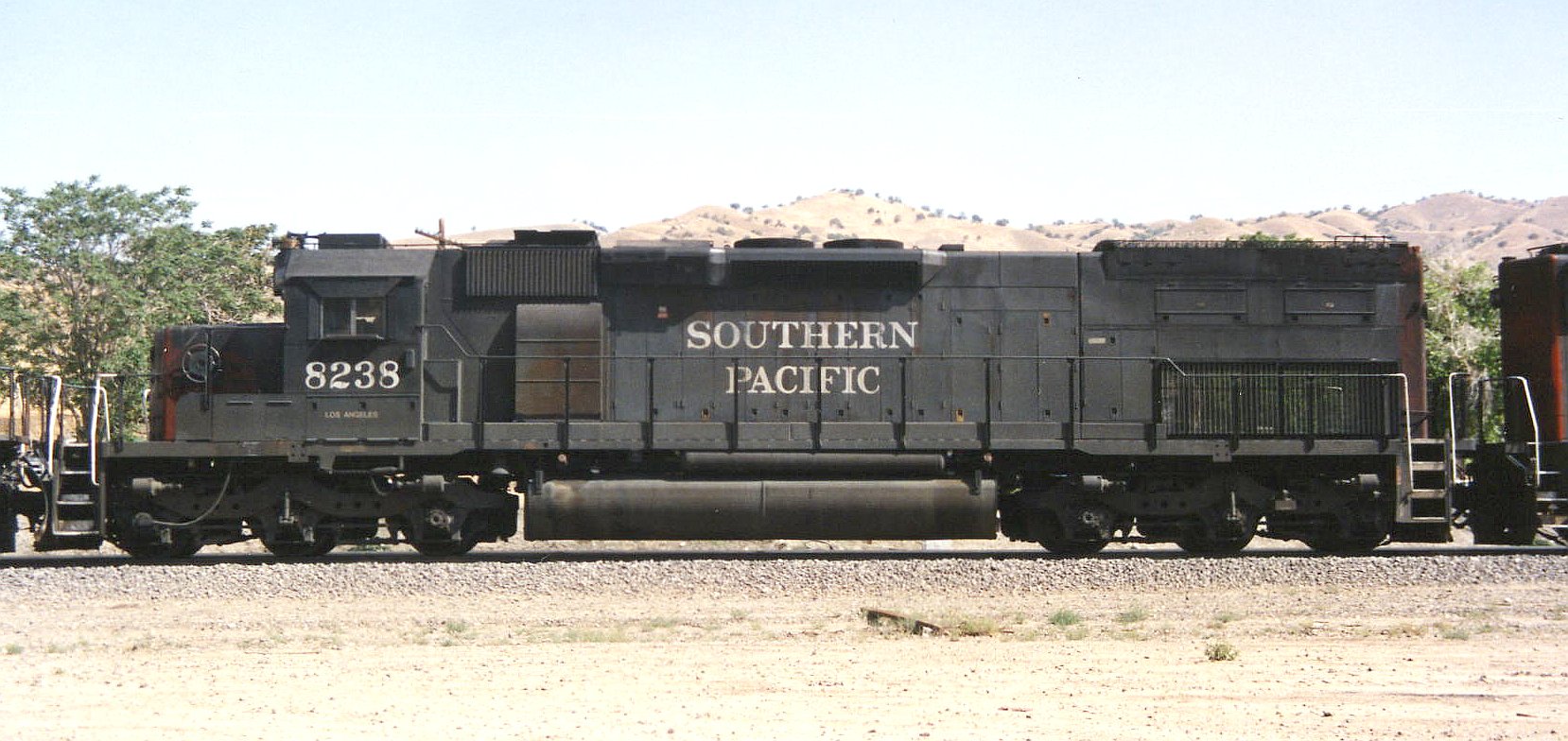Specific Item Information: Not released / Cancelled
Model Information: InterMountain first introduced this model in 2005, and has produced several additional runs since then. The design of the chassis is very much similar to the Atlas SD50/60 mechanism. It sports all the features one normally associates with "modern" diesel models - IE, DCC-Ready / split-frame / all-metal chassis, 5-pole / skew-wound / "slow speed" motor, dual flywheels, low-friction drive, bi-directional LED lighting, all-wheel drive and pickup (no traction tires), blackened / low-profile wheels, shell-mounted magnetic knuckle couplers, all-plastic gearing, etc.
Assembly instructions from Intermountain: SD40T-2 / SD45T-2 (or on company website)
Note on this drawing that several parts are actually Atlas parts.
Assembly instructions from Intermountain: SD40T-2 / SD45T-2 (or on company website)
Note on this drawing that several parts are actually Atlas parts.
DCC Information: Models produced up to 2010 accept the following plug-in decoders (non-sound):
- Digitrax DN166I0: 1.5 Amp Decoder for Intermountain N scale SD40T-2 / SD45T-2.
- TCS IMD4: BEMF decoder designed to fit Intermountain N scale SD40T-2, SD45T-2, SD45-2.
- NCE N12AOe: Plug and Play, 2 function decoder for Intermountain Tunnel Motors.
- Digitrax DN166I0: 1.5 Amp Decoder for Intermountain N scale SD40T-2 / SD45T-2.
- TCS IMD4: BEMF decoder designed to fit Intermountain N scale SD40T-2, SD45T-2, SD45-2.
- NCE N12AOe: Plug and Play, 2 function decoder for Intermountain Tunnel Motors.
Prototype History: An SD40T-2 is a 6-axle diesel-electric locomotive built by General Motors Electro-Motive Division having a 16-cylinder EMD 645E3 diesel engine producing 3,000 horsepower (2,240 kW). 312 SD40T-2s were built for North American railroads between April 1974 and July 1980. This locomotive and the SD45T-2 are popularly called tunnel motors, but EMD's term is SD40-2s with "cooling system modifications" because they were designed for better engine cooling in tunnels. The difference between this locomotive and its non-tunnel motor cousin, the SD40-2, are the radiator intakes and radiator fan grills located at the rear of the locomotive. The radiator air intakes in this model were along the deck to allow more fresh, cooler air to enter and less hot exhaust fumes lingering around the tunnel's ceiling.
EMD SD45T-2 vs SD40T-2 radiator fan motor access doors
This locomotive model was purchased by the Denver and Rio Grande Western Railroad, the Southern Pacific Railroad, and its subsidiary Cotton Belt. Southern Pacific's version has a 4,400-US-gallon (16,700 L; 3,660 imp gal) fuel tank and is 70 feet 8 inches (21.54 m) long. Rio Grande's version has a smaller 4,000-US-gallon (15,100 l; 3,330 imp gal) fuel tank. After merging with Rio Grande, the Southern Pacific and later Union Pacific owned every SD40T-2.
In 2005, most of these units were owned by Union Pacific or leasing companies. By 2008, none were left in service on UP with SP or DRGW reporting marks. DRGW 5371 was the last one, retired in March 2008, and now resides at the Utah State Railroad Museum in Ogden Utah. Another SD40T-2 is preserved at the Boone & Scenic Valley Railroad in Boone, Iowa. UP still runs a few units repainted in its own livery.
Full EMD SD40T-2 data sheet on The Diesel Workshop.
Read more on Wikipedia.
Read more on American-Rails.com
This locomotive model was purchased by the Denver and Rio Grande Western Railroad, the Southern Pacific Railroad, and its subsidiary Cotton Belt. Southern Pacific's version has a 4,400-US-gallon (16,700 L; 3,660 imp gal) fuel tank and is 70 feet 8 inches (21.54 m) long. Rio Grande's version has a smaller 4,000-US-gallon (15,100 l; 3,330 imp gal) fuel tank. After merging with Rio Grande, the Southern Pacific and later Union Pacific owned every SD40T-2.
In 2005, most of these units were owned by Union Pacific or leasing companies. By 2008, none were left in service on UP with SP or DRGW reporting marks. DRGW 5371 was the last one, retired in March 2008, and now resides at the Utah State Railroad Museum in Ogden Utah. Another SD40T-2 is preserved at the Boone & Scenic Valley Railroad in Boone, Iowa. UP still runs a few units repainted in its own livery.
Full EMD SD40T-2 data sheet on The Diesel Workshop.
Read more on Wikipedia.
Read more on American-Rails.com
Road Name History: The Bessemer and Lake Erie Railroad (reporting mark BLE) is a class II railroad that operates in northwestern Pennsylvania and northeastern Ohio.
The railroad's main route runs from the Lake Erie port of Conneaut, Ohio to the Pittsburgh suburb of Penn Hills, Pennsylvania, a distance of 139 miles (224 km). The original rail ancestor of the B&LE, the Shenango and Allegheny Railroad, began operation in October 1869.
Rail operations were maintained continuously by various corporate descendants on the growing system that ultimately became the B&LE in 1900. In 2004 the B&LE came under the ownership of the Canadian National Railway as part of CN's larger purchase of holding company Great Lakes Transportation. As a subsidiary of CN the B&LE has been largely unchanged (though repainting of B&LE locomotives into CN paint with "BLE" sub-lettering began in April 2015) and still does business as the B&LE. Bessemer and Lake Erie's locomotives, especially the former Souther Pacific SD40T-3 "Tunnel Motors", have been scattered across the CN system lately; ironically, many are being used in the line that feeds most of B&LE's traffic, the former Duluth, Missabe, and Iron Range lines in Minnesota. The iron ore that originates on these lines is transloaded to ships at Twin Harbors, Minnesota, then sent by ship to Conneaut, Ohio, where it is again transloaded to B&LE trains. It is then taken down to steel mills in the Pittsburg area, mainly to the blast furnaces at US Steel's Edgar Thompson Plant in Braddock, Pennsylvania, part of the Mon Valley Works. As of summer 2015, most of the locomotives on the B&LE are former Illinois Central standard cab SD70's, although B&LE Tunnel Motor 905 and a few SD38's, still in B&LE orange, are being kept on the line. Also, a few Canadian National locomotives, especially SD60 5422, are assigned to the line.
The railroad's main route runs from the Lake Erie port of Conneaut, Ohio to the Pittsburgh suburb of Penn Hills, Pennsylvania, a distance of 139 miles (224 km). The original rail ancestor of the B&LE, the Shenango and Allegheny Railroad, began operation in October 1869.
Rail operations were maintained continuously by various corporate descendants on the growing system that ultimately became the B&LE in 1900. In 2004 the B&LE came under the ownership of the Canadian National Railway as part of CN's larger purchase of holding company Great Lakes Transportation. As a subsidiary of CN the B&LE has been largely unchanged (though repainting of B&LE locomotives into CN paint with "BLE" sub-lettering began in April 2015) and still does business as the B&LE. Bessemer and Lake Erie's locomotives, especially the former Souther Pacific SD40T-3 "Tunnel Motors", have been scattered across the CN system lately; ironically, many are being used in the line that feeds most of B&LE's traffic, the former Duluth, Missabe, and Iron Range lines in Minnesota. The iron ore that originates on these lines is transloaded to ships at Twin Harbors, Minnesota, then sent by ship to Conneaut, Ohio, where it is again transloaded to B&LE trains. It is then taken down to steel mills in the Pittsburg area, mainly to the blast furnaces at US Steel's Edgar Thompson Plant in Braddock, Pennsylvania, part of the Mon Valley Works. As of summer 2015, most of the locomotives on the B&LE are former Illinois Central standard cab SD70's, although B&LE Tunnel Motor 905 and a few SD38's, still in B&LE orange, are being kept on the line. Also, a few Canadian National locomotives, especially SD60 5422, are assigned to the line.
Brand/Importer Information: InterMountain was founded in 1985 by Fred Brummet. They got started in the model railroad business by producing O-Scale model kits. They got started in the N Scale business almost a decade later when in 1994 they introduced the 40-23 reefer car in kit form. Later, in 1998, they started producing RTR (Ready-to-Run) models. By the early 2000s, InterMountain phased out kit production in favor of the RTR models.
The InterMountain Railway company is located at 1224 Boston Ave in Longmont, CO. They are a manufacturer of HO, N and Z scale model trains. They have produced kits as well as RTR (Ready-To-Run) models. Their N Scale products include locomotives as well as rolling stock. Their rolling stock lineup includes Boxcars, Hoppers, Tank Cars, Reefers, Gondolas, Stock Cars and Flatcars.
Their locomotive releases have primarily been diesel units, with the one major exception being their series of AC-12 Cab Forward steam locos. Their diesel lineup includes F3's, F7's, F9's, SD40's, SD45's and FT units. They are known for quality and detail. They also release their rolling stock in larger varieties of road numbers than most of the other manufacturers.
The InterMountain Railway company is located at 1224 Boston Ave in Longmont, CO. They are a manufacturer of HO, N and Z scale model trains. They have produced kits as well as RTR (Ready-To-Run) models. Their N Scale products include locomotives as well as rolling stock. Their rolling stock lineup includes Boxcars, Hoppers, Tank Cars, Reefers, Gondolas, Stock Cars and Flatcars.
Their locomotive releases have primarily been diesel units, with the one major exception being their series of AC-12 Cab Forward steam locos. Their diesel lineup includes F3's, F7's, F9's, SD40's, SD45's and FT units. They are known for quality and detail. They also release their rolling stock in larger varieties of road numbers than most of the other manufacturers.
Item created by: Alain LM on 2016-12-31 15:22:16. Last edited by gdm on 2020-07-24 07:24:35
If you see errors or missing data in this entry, please feel free to log in and edit it. Anyone with a Gmail account can log in instantly.
If you see errors or missing data in this entry, please feel free to log in and edit it. Anyone with a Gmail account can log in instantly.



